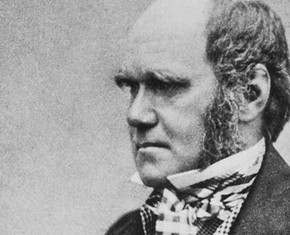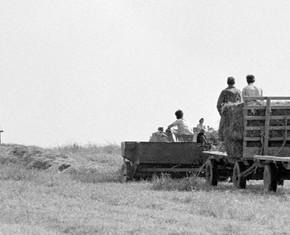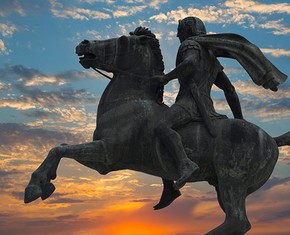The views expressed in our content reflect individual perspectives and do not represent the authoritative views of the Baha'i Faith.
God’s purpose in sending His Prophets unto men is twofold. The first is to liberate the children of men from the darkness of ignorance, and guide them to the light of true understanding. The second is to ensure the peace and tranquility of mankind, and provide all the means by which they can be established. – Baha’u’llah, Gleanings from the Writings of Baha’u’llah, pp. 79–80.
A long cherished ideal–the natural rights of man—underpins the concept of most modern nations.
In the United States, the founders based the Declaration of Independence on the revolutionary works of the British philosopher John Locke, who advanced the extraordinary proposition that governments exist to serve their citizens. He said citizens have rights to life, liberty and property that must be protected by the rule of law–as opposed to the tyranny of the divine right of kings.
But what about slavery? Locke’s position, and the position of many of the Founders, viewed the tyranny of slavery as predating the founding of the nation. They felt that no way could be found to bring slave states into the union, except by allowing them to retain their odious institution. If men hate being told what to do, some reasoned, they detest being deprived of their prized possessions even more.
But then, in 1852, Baha’u’llah received his mission while shackled in chains, just as the slaves were. His revelation, he said, intended to bring about a whole new world based on justice and unity:
The light of men is Justice. Quench it not with the contrary winds of oppression and tyranny. The purpose of justice is the appearance of unity among men. – Baha’u’llah, Tablets of Baha’u’llah, p. 67.
Baha’is believe that Baha’u’llah’s advent set in motion an inexorable process of clearing away by the roots, once and for all, each and every obstacle to the unity of humanity. This process then took palpable hold of the American psyche, initiating an ongoing conversation about slavery and race destined to affect the hearts of everyone.
In the words of Abraham Lincoln:
A house divided against itself cannot stand. I believe this government cannot endure permanently half-slave and half-free. I do not expect the Union to be dissolved – I do not expect the house to fall – but I do expect it will cease to be divided. It will become all one thing or all the other. – Lincoln’s ’House-Divided’ Speech in Springfield, Illinois, June 16, 1858.
This debate about slavery and liberty rocked the nation to its core, demonstrating an early sign of the penetrating influence of the Spirit of the Age, calling out to the “better angels” of human hearts all over the world. For even as Abraham Lincoln argued against slavery in America; Baha’u’llah illuminated the world with piercing insights into the complex questions about freedom that had confused men for centuries.
Consider, for example, the following passage revealed by Baha’u’llah in 1861, in which he quotes Jesus Christ and explains the meaning of the Day of Resurrection:
Even as Jesus said: … ‘Ye must be born again…. Except a man be born of water and of the Spirit, he cannot enter into the Kingdom of God. That which is born of the flesh is flesh; and that which is born of the Spirit is spirit.’ The purport of these words is that whosoever in every dispensation is born of the Spirit and is quickened by the breath of the Manifestation of Holiness, he verily is of those that have attained unto “life” and “resurrection” and have entered into the “paradise” of the love of God. And whosoever is not of them, is condemned to “death” and “deprivation,” to the “fire” of unbelief, and to the “wrath” of God.” – Baha’u’llah, The Book of Certitude, p. 118.
Baha’u’llah’s revelation animated the human conscience with an exalted standard of equity and justice completely incompatible with slavery:
The tabernacle of unity hath been raised; regard ye not one another as strangers. Ye are the fruits of one tree, and the leaves of one branch. We cherish the hope that the light of justice may shine upon the world and sanctify it from tyranny. – Baha’u’llah, Gleanings from the Writings of Baha’u’llah, p. 218.
In 1860, as Baha’u’llah’s spiritual influence dawned over the horizon of human consciousness, a preponderance of the American people elected Abraham Lincoln President. It is hard to imagine a more compelling example of the confirming grace of God. Lincoln, maybe the most unlikely candidate imaginable, swept into office on the back of compelling oratory against the spread of slavery.
His victory so agitated the pro-slavery states’ rights advocates that they decided to secede before the new president could take the oath of office. Shortly after President Lincoln’s inauguration, on April 12, 1861, the secessionists attacked Fort Sumter and the Civil War began.
As a result, the United States slipped into the single most devastating conflict in its history. Over 620,000 soldiers lost their lives in the fiery crucible that overturned slavery and welded the nation into the united Republic.
For millions of African American slaves the extraordinary promise of a “New Day” had dawned in palpable fulfillment of Baha’u’llah’s promise:
Soon will the present-day order be rolled up, and a new one spread out in its stead. By Myself! The day is approaching when We will have rolled up the world and all that is therein, and spread out a new Order in its stead. – Baha’u’llah, Gleanings from the Writings of Baha’u’llah, p. 7.
With the adoption of the 13th Amendment of the Constitution on December 18, 1865 the United States of America abolished slavery–demonstrating the extraordinary efficacy of Baha’u’llah’s revelation to exert its influence over even the most intractable of human challenges.
You May Also Like
Comments


















Abe Lincoln is equally admired here in Australia especially among our indigenous peoples.
You've cited in your closing sentences perhaps the most cited aphorism penned by Bahaú'llah:
"Soon will the present-day order be rolled up, and a new one spread out in its stead.". – Baha’u’llah, Gleanings from the Writings of Baha’u’llah, p. 7.
Bahá’ís concede as axiomatic that the present day order will soon be rolled up and a new one will be laid out in its stead. In other words, we believe that we are on the brink of monumental change. It follows that enormous ...change may equally apply to our language order. Surely it is a non sequitur to hold that the colonial language of the old world order thinking will remain in prominence. Strengthening my viewpoint, the Research Department of the Universal House of Justice in 1995 stated: "There is however nothing in the Bahá'í writings suggesting that the English language will become the international auxiliary language."
Moreover, the global implementation of an easily learnt auxiliary language will in one swoop lift onto a level playing field all disadvantaged children and allow them equal access to the knowledge and schooling taken for granted by the major beneficiaries of the colonial and slave systems. Is this not justice extrodinaire mon ami? As grassroots believers we are not called on to decide which language will be chosen but we are honor bound to discuss the principle and to be au fait re its many divine benefits that John Dale has put on the record here.
Bahaí love.
Paul